INTERESTED IN FINDING OUT MORE?
We'd love to hear from you! Contact us to find out more.
Mental health inpatient settings are a safe space for people to receive vital care. For varying and complex reasons, barricade scenarios can often be a reality.
With 90% of inpatient suicides occurring in either the patient's bedroom or bathroom, clincial staff need fast, reliable access into the room.
Our anti-barricade doorsets with mechanical locking (5-way SOS) are designed to keep patients safe whilst ensuring staff can gain access.
We'd love to hear from you! Contact us to find out more.
You can change your preferences or unsubscribe at any time. You agree to Safehinge Primera using your personal data in accordance with our privacy policy. We use your data to personalise and improve your experience on our digital platforms, provide products and services you request from us, and carry out market research. We will never sell your personal data to third parties.
You can change your preferences or unsubscribe at any time. You agree to Safehinge Primera using your personal data in accordance with our privacy policy. We use your data to personalise and improve your experience on our digital platforms, provide products and services you request from us, and carry out research. We will never sell your personal data to third parties.
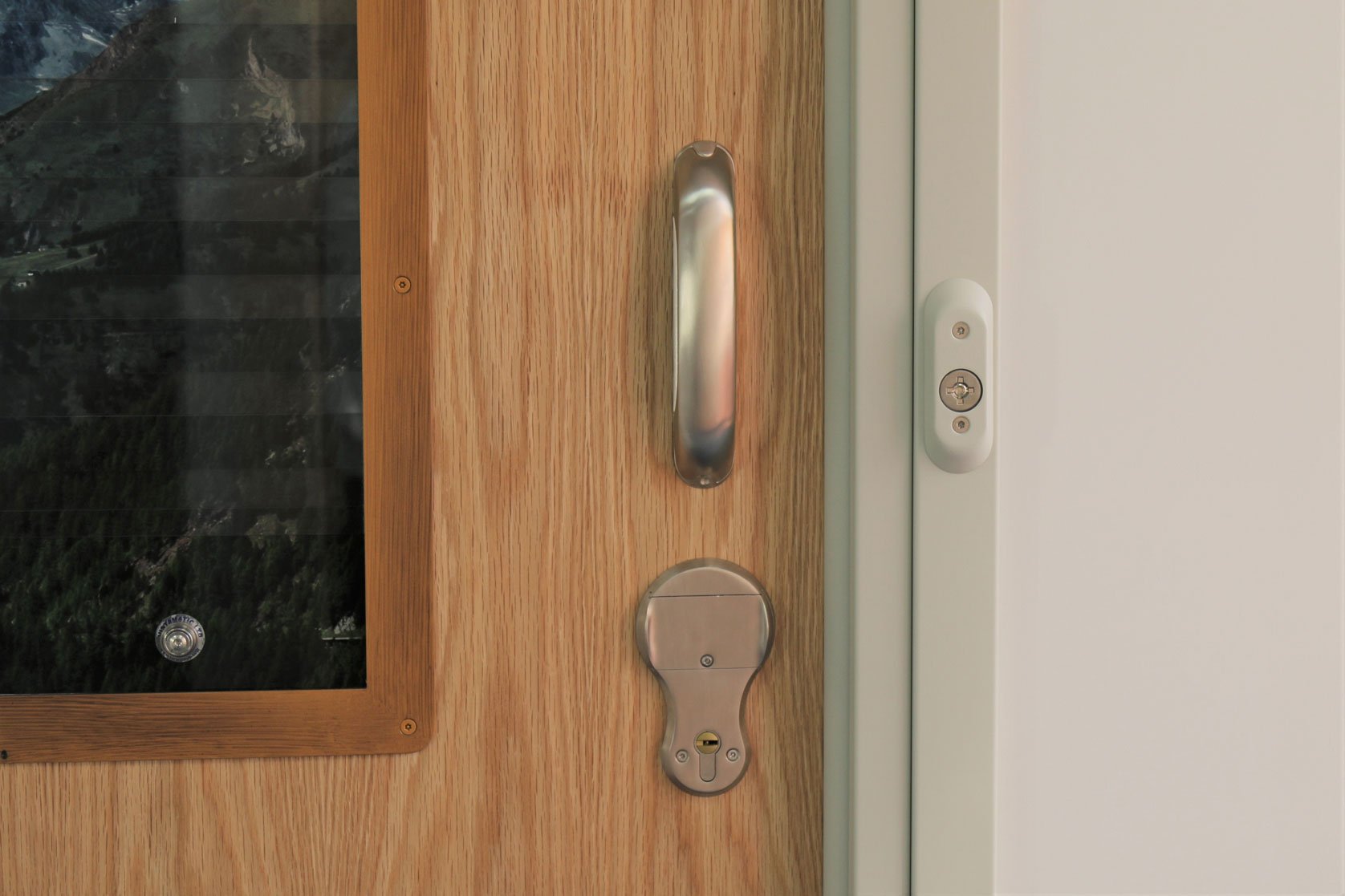
With 46% of ligatures occurring on doors or door hardware in mental health inpatient settings, we have a duty of care to ensure our doorsets and locksets meet the highest anti-ligature standards.
Unfortunately, even with anti-ligature design, the reality is that patients are still able to find means of creating ligatures.
The full-door ligature alarm turns the entire door into a weighing scale; immediately sending an alert to the nearest nursing station when a ligature is attempted and helping to fill in blind spots between observations.
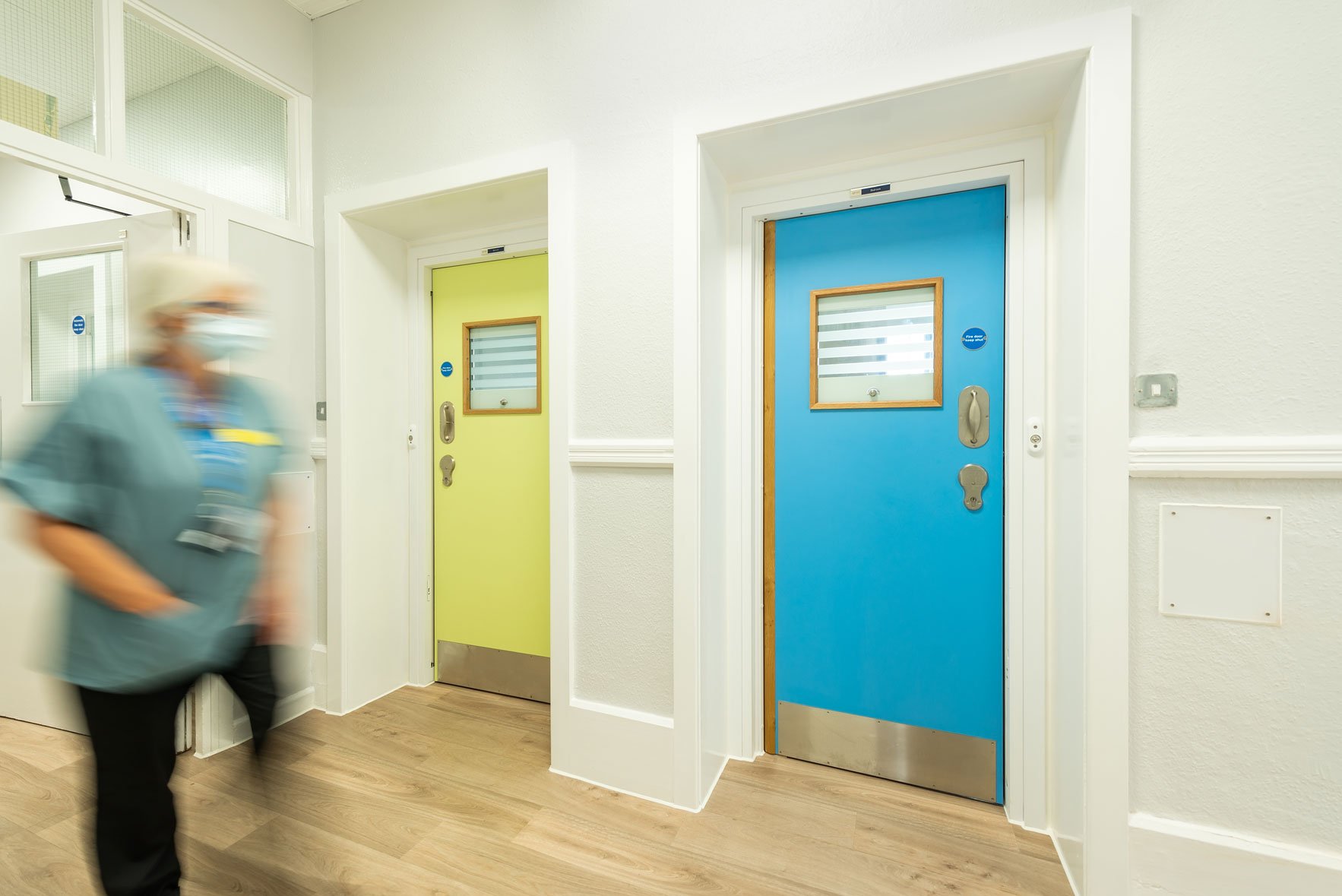
During day-to-day use, the door functions as any standard door would - using a key to lock and unlock. The difference is in a barricade scenario as it's provides staff with critical pull advantage to ensure they're able to open the door.
The recent nationwide safety alert made the importance of reliable access even more pertinent as it reported that a patient had jammed the door closed and staff were unable to gain access. Tragically, this resulted in the loss of life.
Whenever an alert like this is issued, we always reassess our own rigorous test methods and reflect on clinical feedback.
Clinicians told us that the critical function is getting access to the room, not just overriding the lock or the anti-barricade stop.
3 key functions to consider when assessing your anti-barricade systems. Can you:
.jpg?width=1140&height=760&name=anti-barricade-doors-Newnham-Ward-111b%20(1).jpg)
We can all appreciate how much our surrounding environment can impact our wellbeing. Our doorsets are designed to keep metal fixings to a minimum and help to create a more comfortable and therapeutic setting.
We're passionate about working together with not only those working in mental healthcare, but people who have experienced receiving care within these facilities.
Experts by lived experience told us that doors with noticeable metal fixings (such as multiple screws) made it feel as though they were in a custodial setting instead of a place to receive care.
So we take time to design our doors in a way that contrasts this kind of institutional environment and instead helps patients to feel at ease.
Unfortunately, even with anti-ligature design, the reality is that patients are still able to find means of creating ligatures.
The full-door ligature alarm turns the entire door into a weighing scale; immediately sending an alert to the nearest nursing station when a ligature is attempted and helping to fill in blind spots between observations.
The recent nationwide safety alert made the importance of reliable access even more pertinent as it reported that a patient had jammed the door closed and staff were unable to gain access. Tragically, this resulted in the loss of life.
Whenever an alert like this is issued, we always reassess our own rigorous test methods and reflect on clinical feedback.
Clinicians told us that the critical function is getting access to the room, not just overriding the lock or the anti-barricade stop.
3 key functions to consider when assessing your anti-barricade systems. Can you:
We're passionate about working together with not only those working in mental healthcare, but people who have experienced receiving care within these facilities.
Experts by lived experience told us that doors with noticeable metal fixings (such as multiple screws) made it feel as though they were in a custodial setting instead of a place to receive care.
So we take time to design our doors in a way that contrasts this kind of institutional environment and instead helps patients to feel at ease.
Mildmay Oaks offers inpatient rehabilitation services for people with learning difficulties and autistic spectrum disorders.
The facility was created to support patients in their care pathway towards finding a community-based placement.
Key to this, was creating a homely, non-institutional environment for patients as they transitioned into their placements.
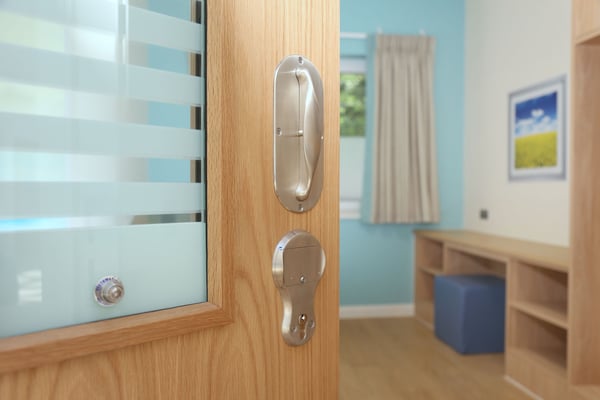
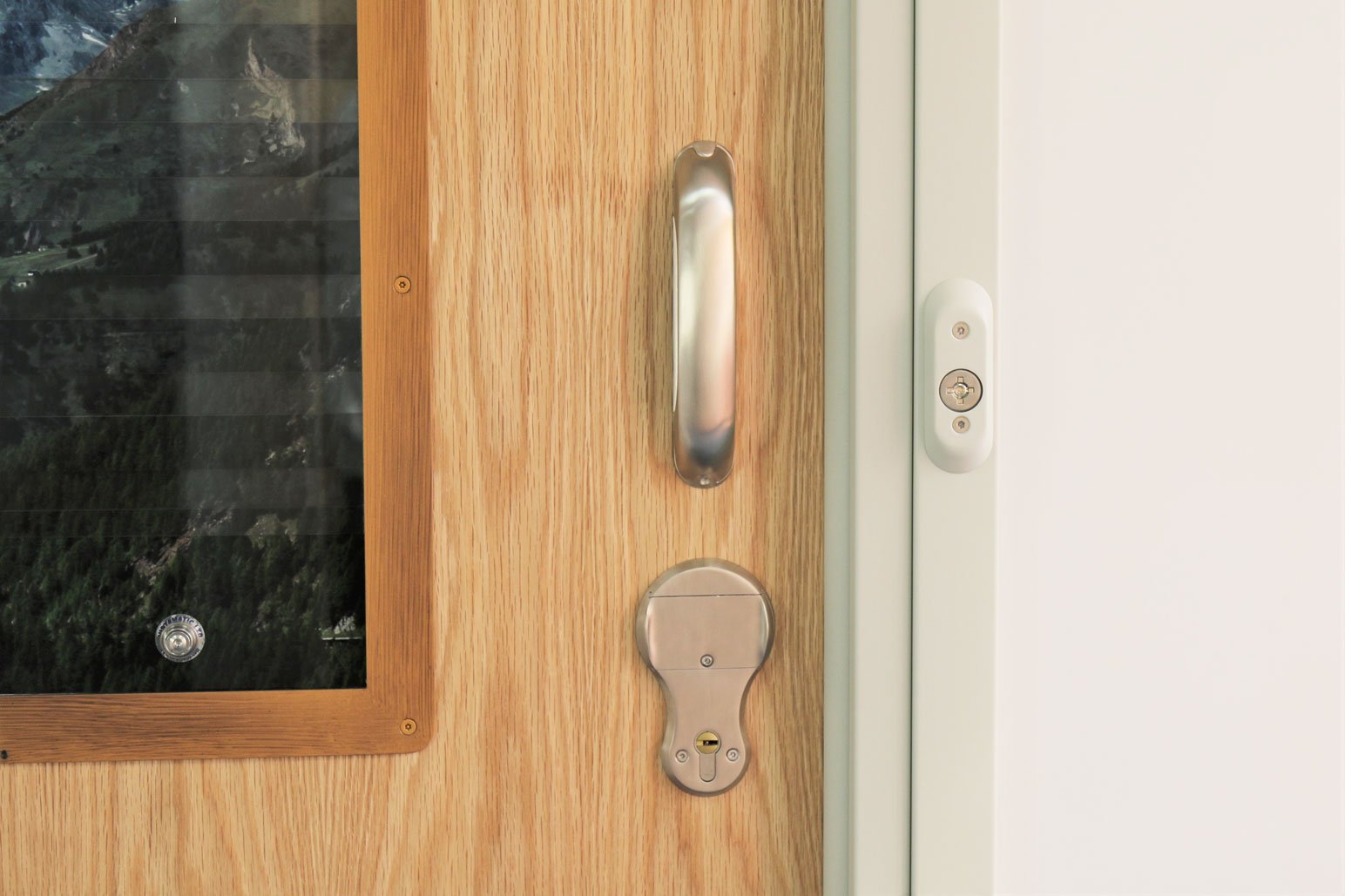
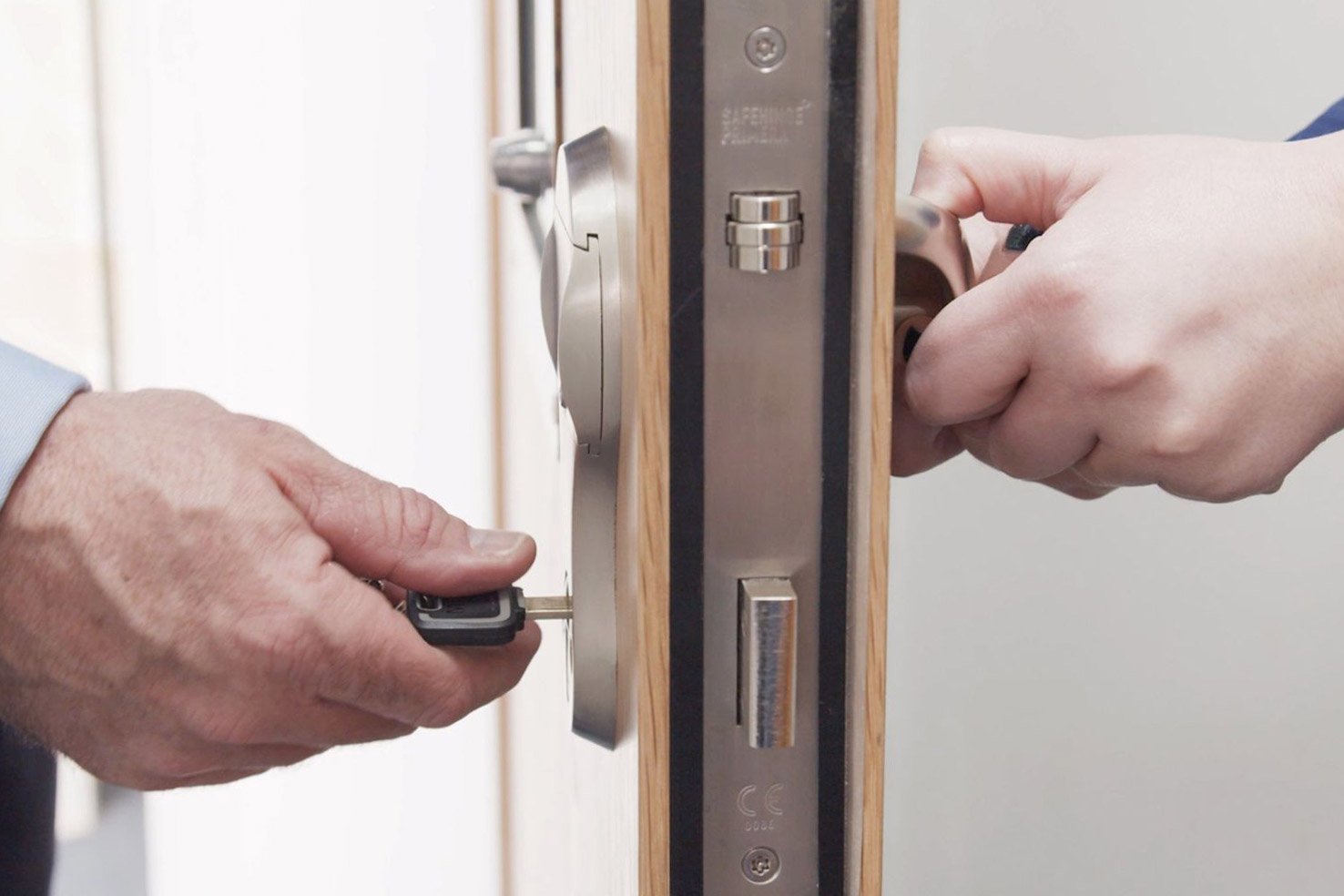
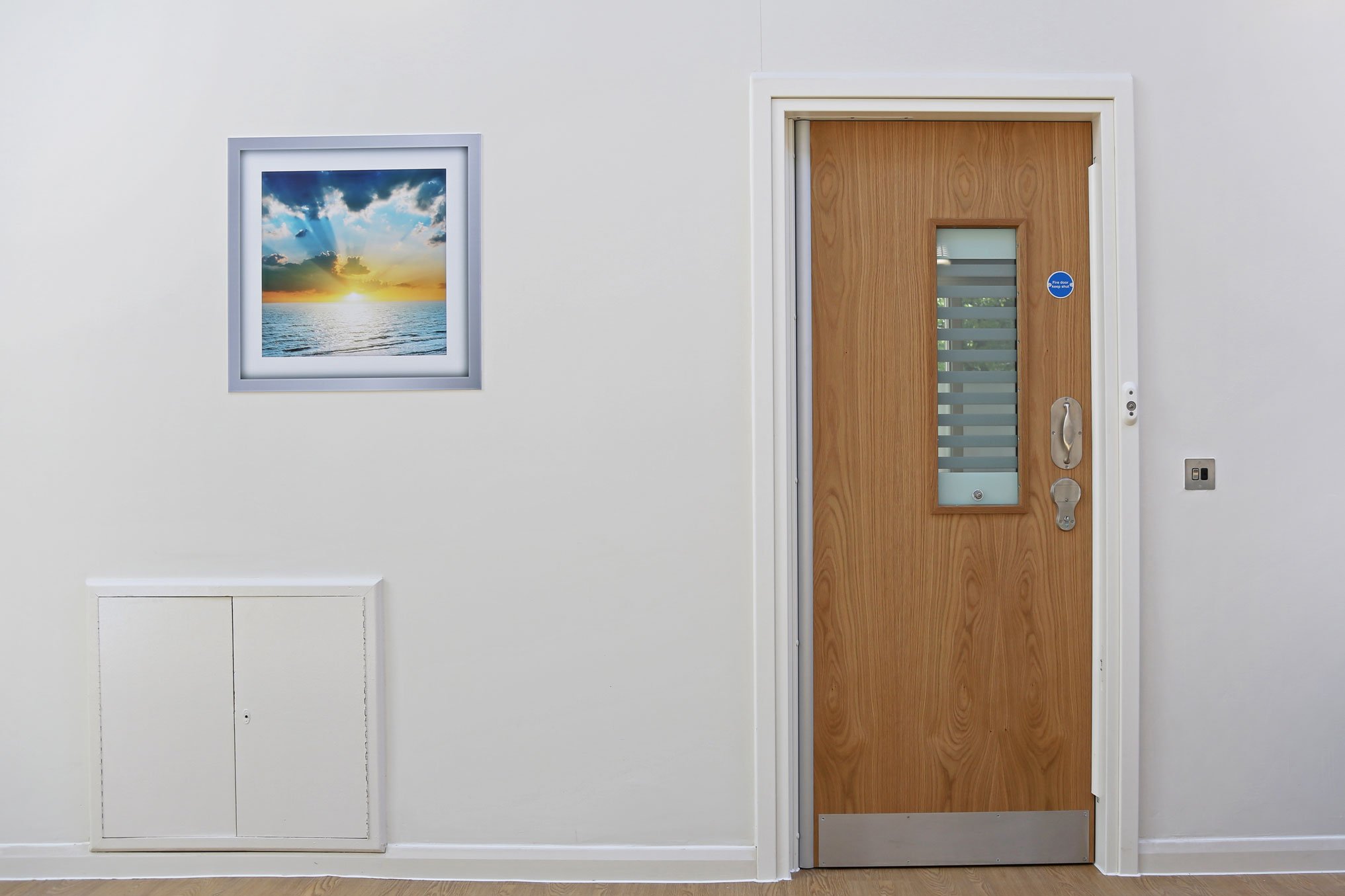
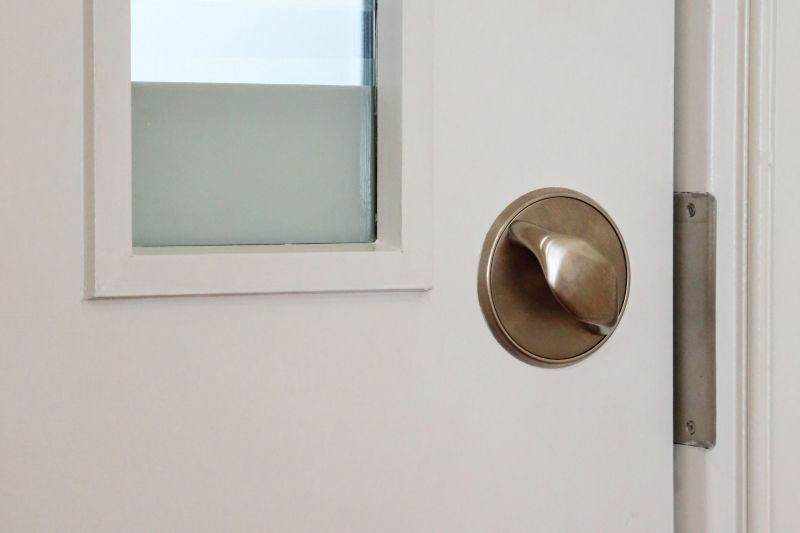

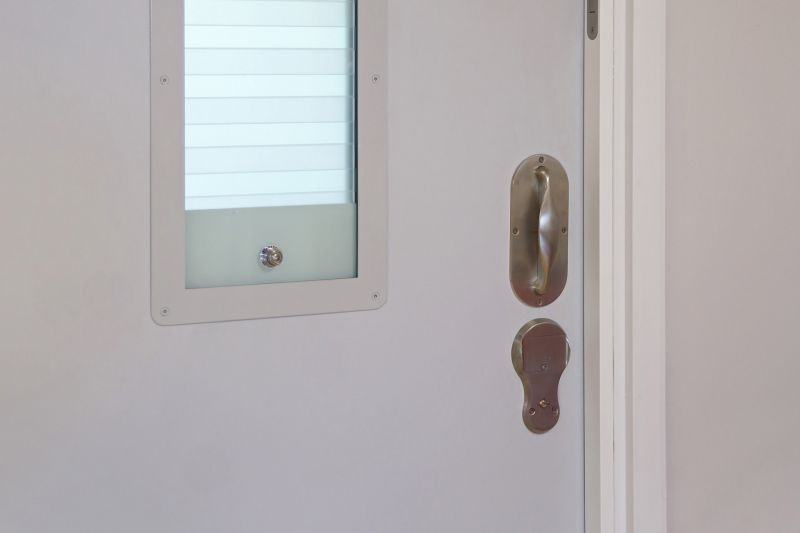
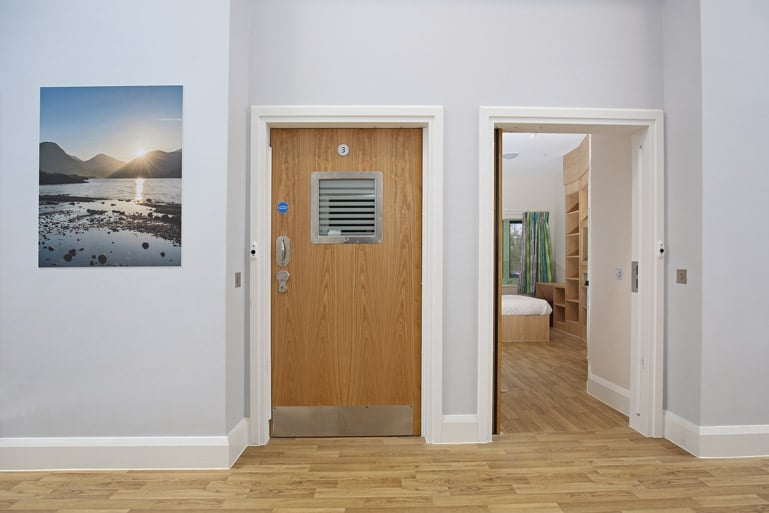
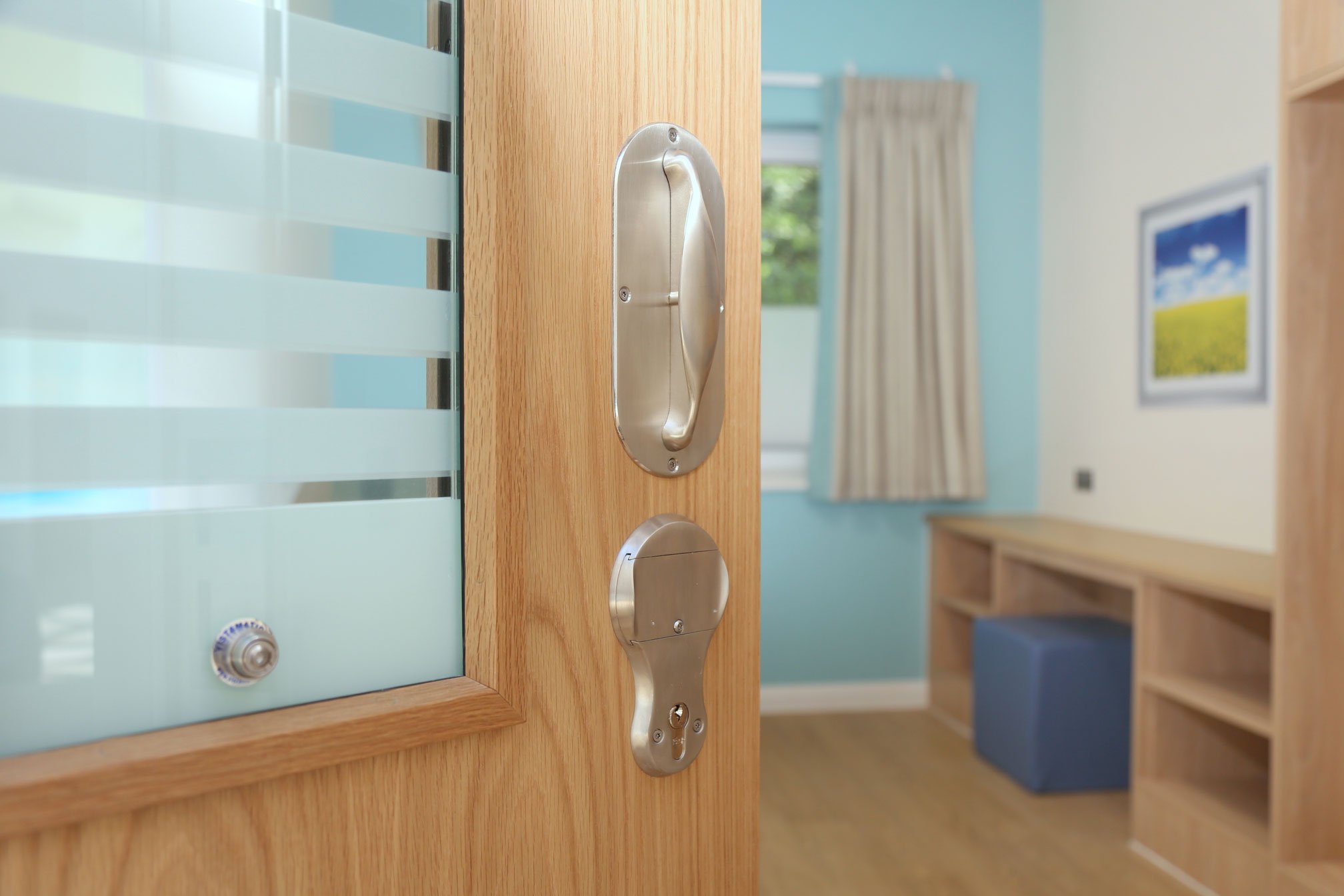
.jpg?width=1140&height=760&name=anti-barricade-doors-Newnham-Ward-111b%20(1).jpg)








.jpg?width=1140&height=760&name=anti-barricade-doors-Newnham-Ward-111b%20(1).jpg)
UK - Glasgow
44 Speirs Wharf
Glasgow
G4 9TH
t: +44 330 058 0988
e: info@safehingeprimera.com
UK - Blackpool
Unit 8 Bankfield House
250 Bristol Avenue
Blackpool
FY2 0JF
t: +44 330 058 0988
e: sales@safehingeprimera.com
USA - Boston MA
177 Huntington Ave
17th Floor
Boston
MA. 02115
t: +1 347. 506. 2114
e: inquiries@safehingeprimera.com
AU - Hipac Head Office
36 Long Street
Goulburn
New South Wales
Australia 2580
UK - Glasgow
44 Speirs Wharf
Glasgow
G4 9TH
t: +44 330 058 0988
e: info@safehingeprimera.com
UK - Blackpool
Unit 8 Bankfield House
250 Bristol Avenue
Blackpool
FY2 0JF
t: +44 330 058 0988
e: sales@safehingeprimera.com
USA - Boston MA
177 Huntington Ave
17th Floor
Boston
MA. 02115
t: +1 347. 378. 0174
e: inquiries@safehingeprimera.com
© Safehinge Primera 2023. Design By Submarine. Development By Crocodiles